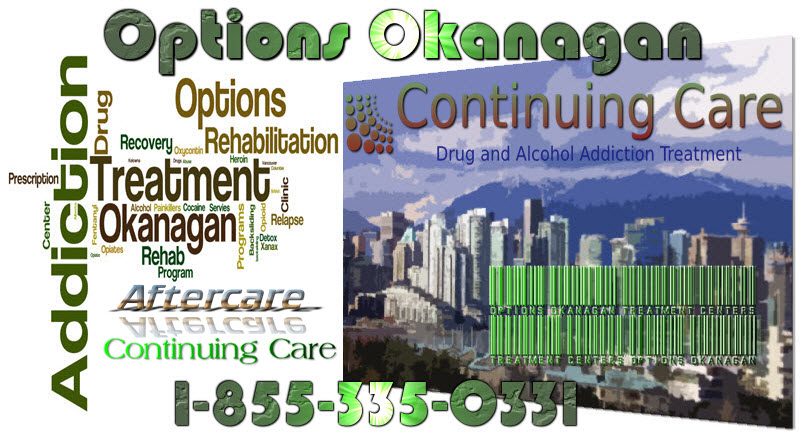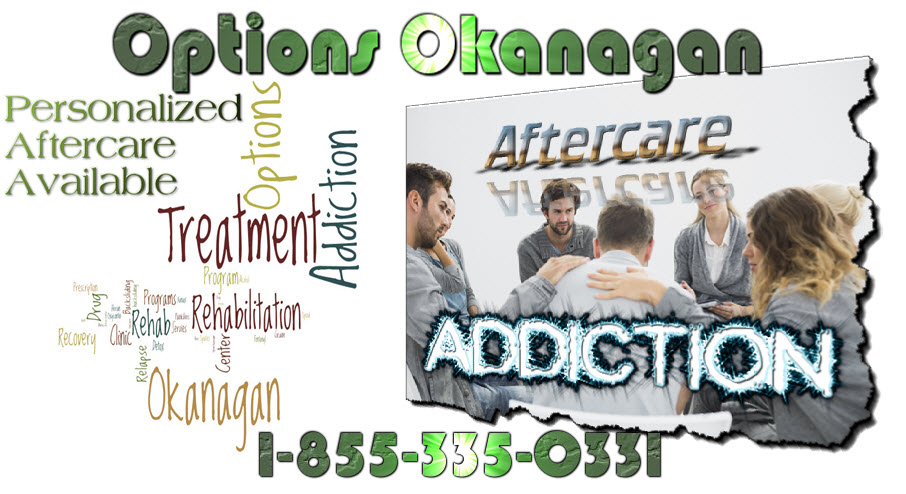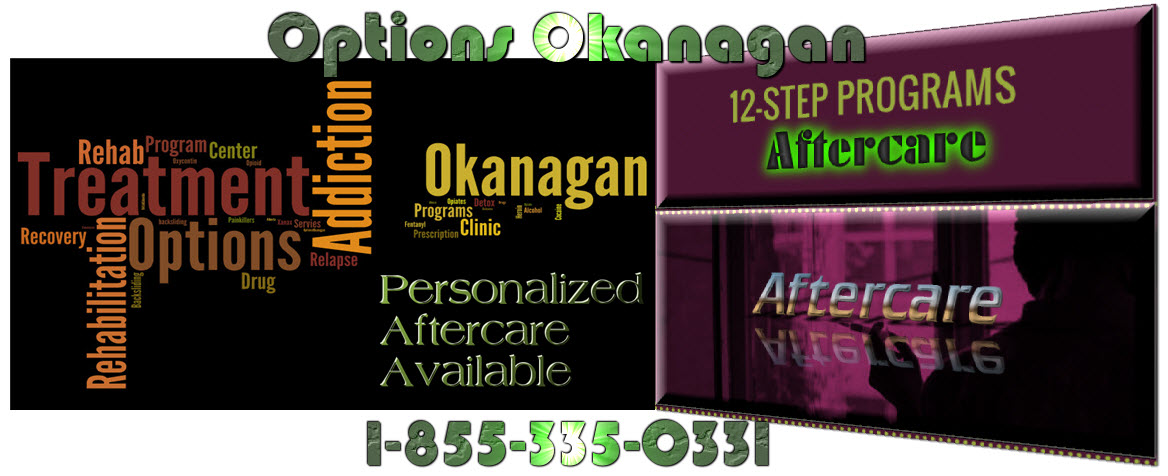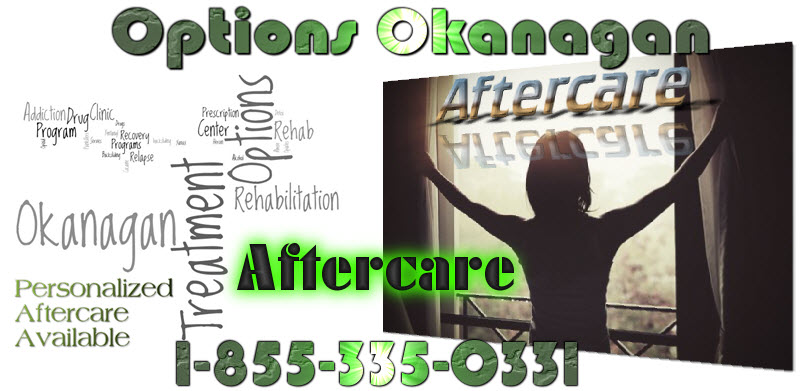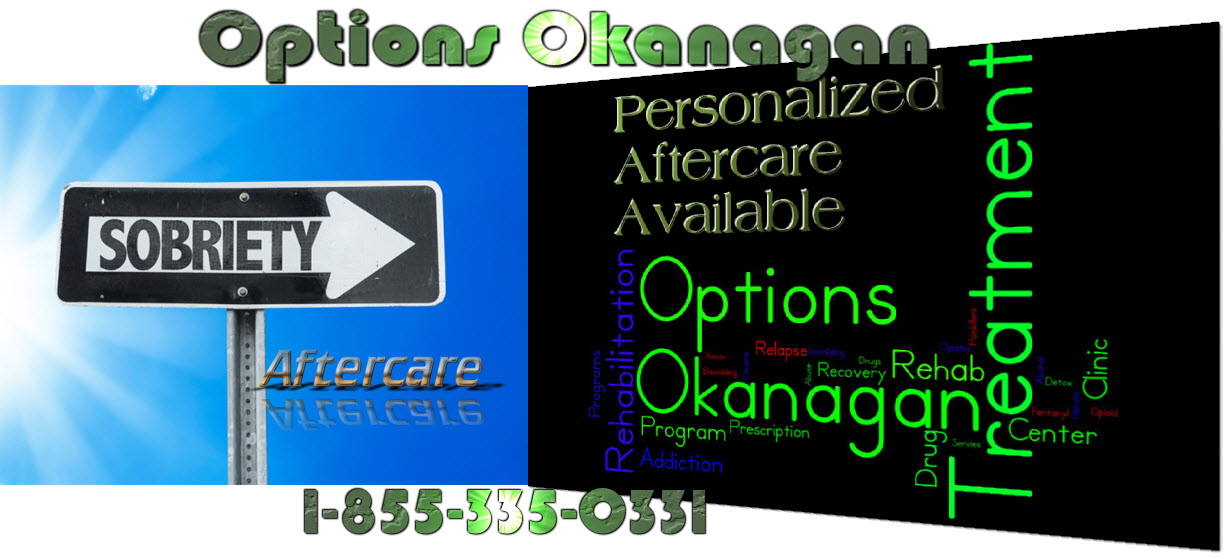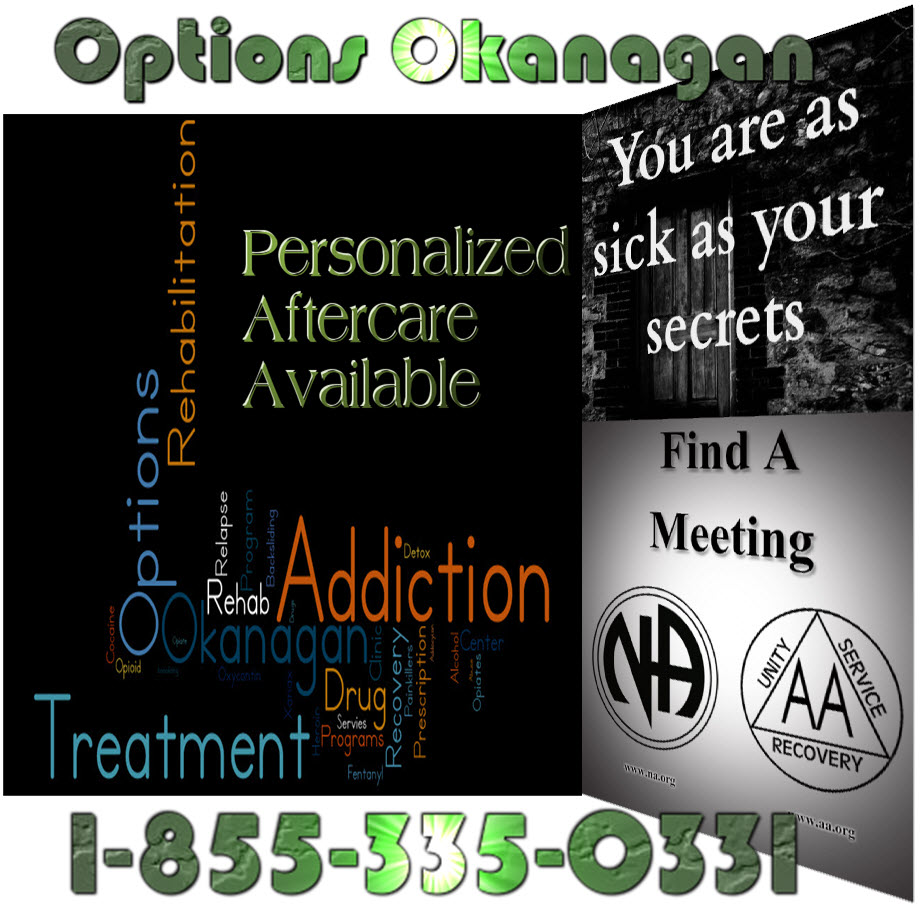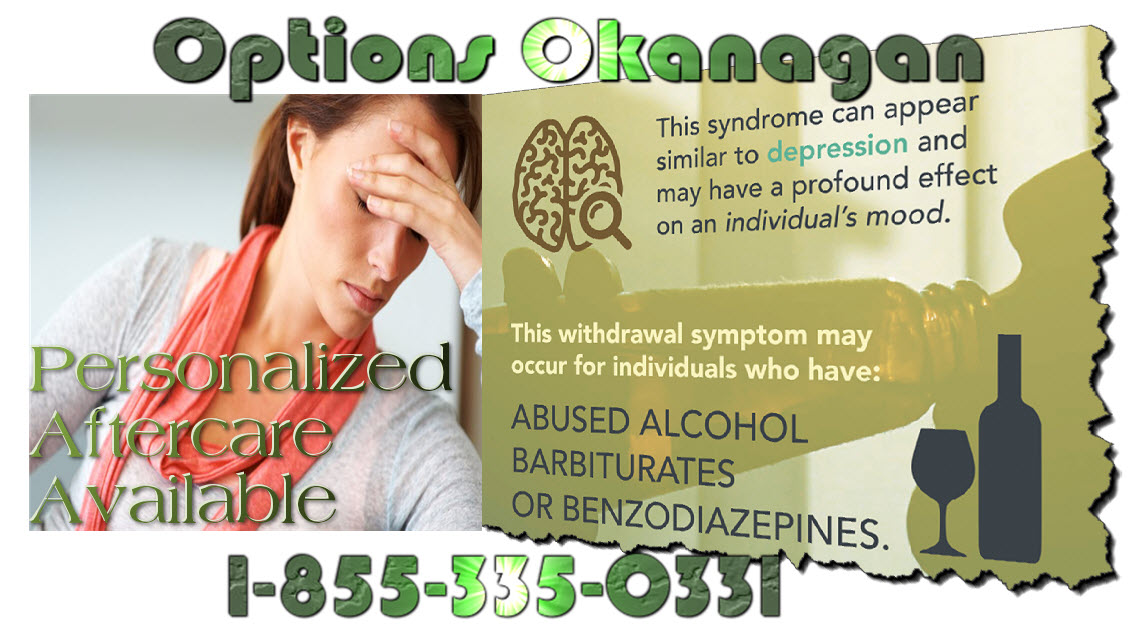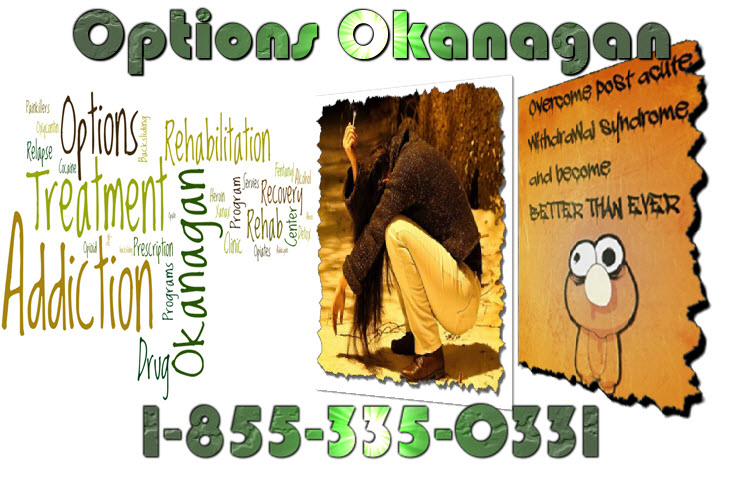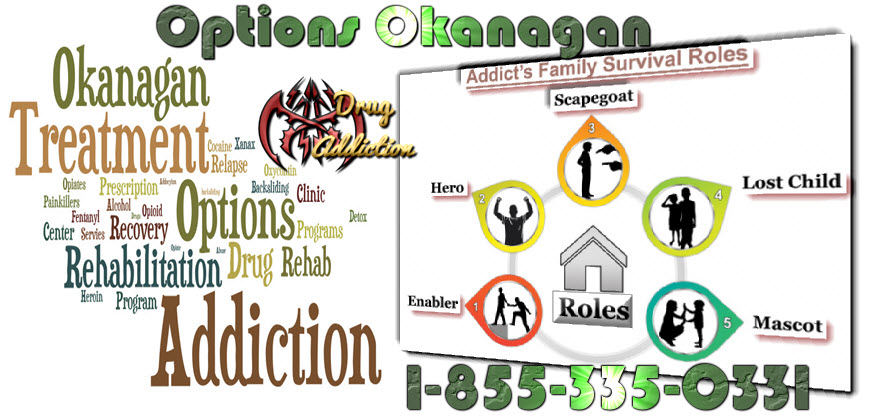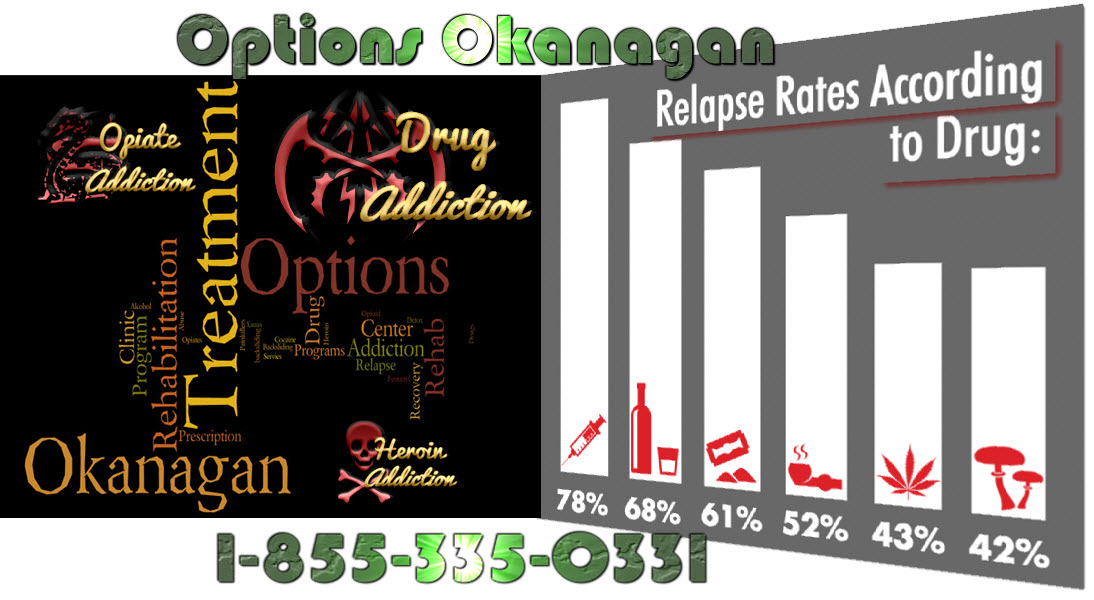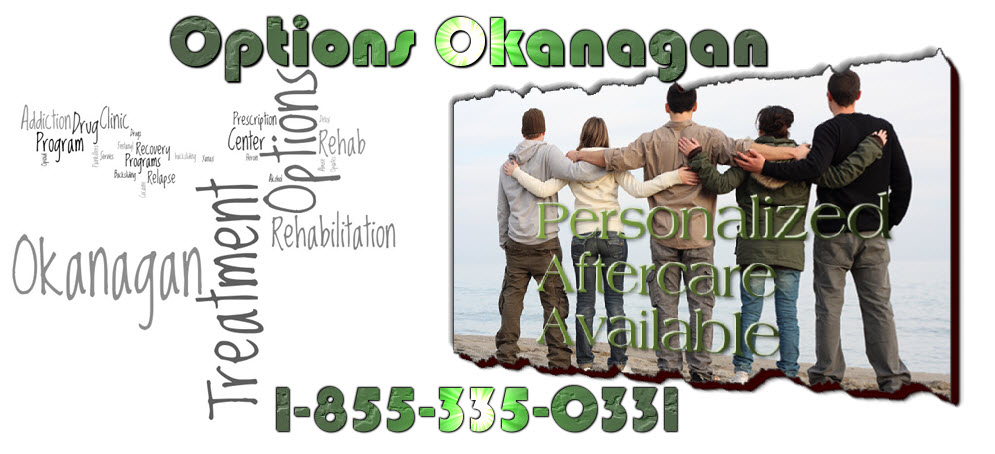The importance of Aftercare and Continuing Care – Helping people with drug and alcohol treatment in Vancouver, Victoria or Kelowna, British Columbia what aftercare program is needed for a potential relapse back in addiction – Options Okanagan Treatment Centers in Kelowna, British Columbia treating opiate and alcohol addiction and recovery.
Overcoming an addiction is difficult for most people. They must make many significant changes in their life, from who their friends are to becoming financially stable. If treatment is needed, they may have difficulty with getting time away from their job without risking being fired. Transportation may also be an issue. They will have to be confronted with family or personal issues that may be emotionally painful. Besides the many social and psychological issues, many substances will also cause physical withdrawal symptoms that must be dealt with as well. This means a recovering addict will be bombarded with many different and uncomfortable experiences as they work through their addiction. Many find it so difficult, they wonder if they can survive treatment, or if it is worth all the pain they are dealing with.
Therapy is a key factor in helping people stick with their plan of recovery. Specialists in addiction know what individuals are going through during their recovery, and may be able to recommend replacement medications and other methods of making it through the process. However, it is important to remember that replacement drugs are meant to be a temporary tool. Sustained recovery will mean eventually weaning off of even the recovery medications and sustaining sobriety without them.
Another essential element of a successful treatment program is a support system that includes family and other household members of the person in treatment. This is not a simple prospect.
Dealing with a family member or friend with an addiction problem means that they have likely dealt with abusive behavior, stealing, and many other issues as the person struggled. They may have done or said things that are very hurtful, especially when they are struggling with the feelings and emotions that come up during withdrawal and subsequent treatment.
Nevertheless, having emotional support in the form of counselors, doctors, friends, and family, is essential for a successful recovery from addiction.
The first thing to do is find the right form of treatment for the person who is in recovery. The treatment plan should correspond to the substance the patient has had a problem with. The treatment plan should also be able to address any mental disorders that may contribute to or worsen the addiction. Counselors should be sympathetic to the patient’s situation and supportive in nature. The program should also be sensitive to any special needs the patient has regarding age, gender, race, or anything else. For example, a program that specializes in LGBT patients may be of great help to someone whose sexuality has had an impact on their life. You should also find out if the doctors in the program are aware of the most current prescriptions available that may be able to help the person, especially at the beginning of their treatment when withdrawal is the most difficult.
Some other important facts that should be considered when a person is getting treatment include:
1. How involved are the family? This is one of the biggest indicators of success.
2. Does the person have a therapist or counselor? This is especially important for people who may not have the most supportive home environment. A good counselor can provide support and advise to the recovering addict.
3. What type of treatment is needed? There are many different approaches when it comes to treatment. Some include prescription drugs, therapy, medical intervention, or any combination. If a particular type of treatment doesn’t seem to be fitting, it is important to not give up. Instead, consider trying again with a different approach until something works well.
4. How motivated is the person recovering? A person must be willing to change if they hope to see success.
5. Is the patient experiencing stress or pressure from outside sources? Contrary to some beliefs, being forced into treatment is not always a good thing.
Options Okanagan Opiate and Alcohol Treatment Centers in Kelowna, Salmon Arm and Vancouver, British Columbia – Men and Women are recovering and healing from Alcohol and Drug Abuse at our treatment center here in the Okanagan right now.
Our unique and distinctive Opiate Drug and Alcohol treatment program allows men and women to come in from Calgary as well as Edmonton as we offer airport pickup.
Numerous clients come to us from Vancouver, Victoria, Calgary and Edmonton and other locations in Alberta and even other provinces for Opiate addiction treatment, heroin drug treatment, many other drug and alcohol addictions for rehabilitation because of the uniqueness of our treatment center.
Our Treatment Location:
Options Okanagan Opiate Treatment Center
551 Sherrydale Crescent, Kelowna, British Columbia, V1V 2E6
Toll Free Phone Number : 1-855-335-0331






